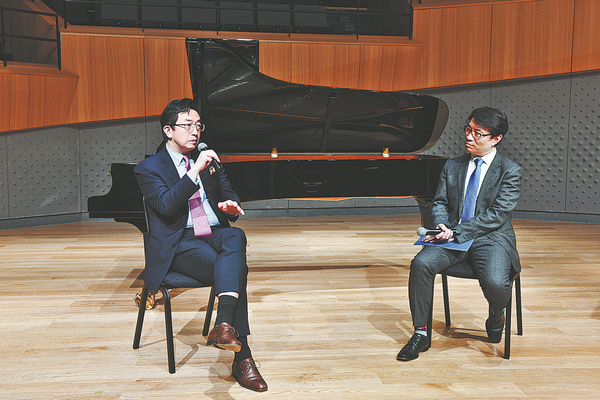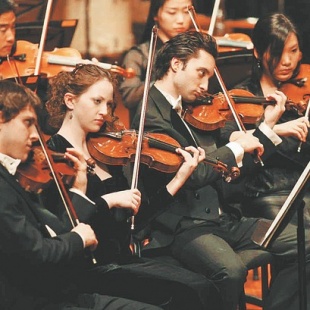A relationship of note


One of the key figures who has made a great contribution to the cultural exchange between China and the US was Chinese American composer Chou Wen-chung, who was commemorated during the online symposium.
In 1978, the Center for US-China Arts Exchange was established by Chou at Columbia University. It was a long time wish for Chou to launch such a program, and he believed that culture and the arts would be the common language through which both countries could share their mutual respect.
Born in Yantai, Shandong province, Chou moved to New York in 1946. He joined the faculty at Columbia University in 1964 and taught an increasingly international array of students, including the acclaimed composers Tan Dun, Zhou Long, Chen Yi and Bright Sheng, until his retirement in 1991.
In the late 1970s, Chou was among the first overseas Chinese composers to visit the Central Conservatory of Music in Beijing and made a deep impression on a group of young composers. Zhou was among the young students.
"I was influenced by Chou's aesthetic concept, which was based on the philosophy of traditional Chinese culture and ancient poetry of China," recalls Zhou during the online symposium. In 1985, Zhou became the first composition student from Beijing to be admitted to Columbia University to study under Chou.
Zhou had culture shock when he first arrived in New York, where he encountered many new ideas. But from 1985 until 1987, he didn't compose anything. Chou inspired and encouraged him. In 1990, Zhou composed the piece, Dhyana, which was dedicated to Chou. In 1993, Zhou received his doctorate in musical arts and was later awarded a Pulitzer Prize for his first opera, 2011's Madam White Snake.





































